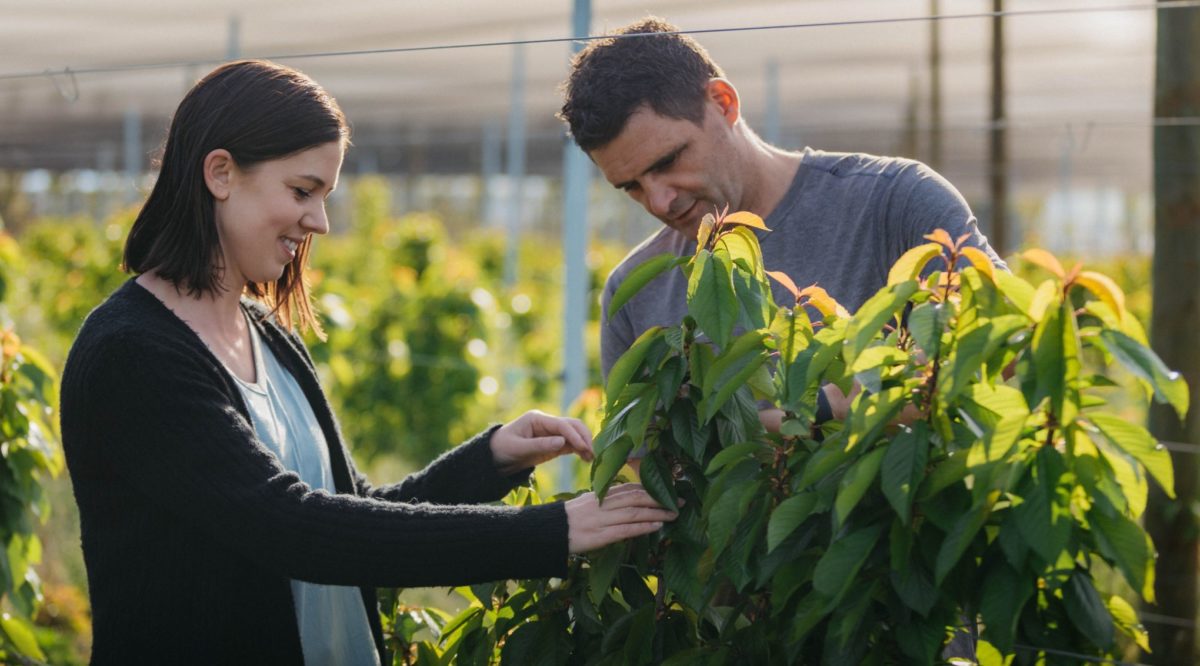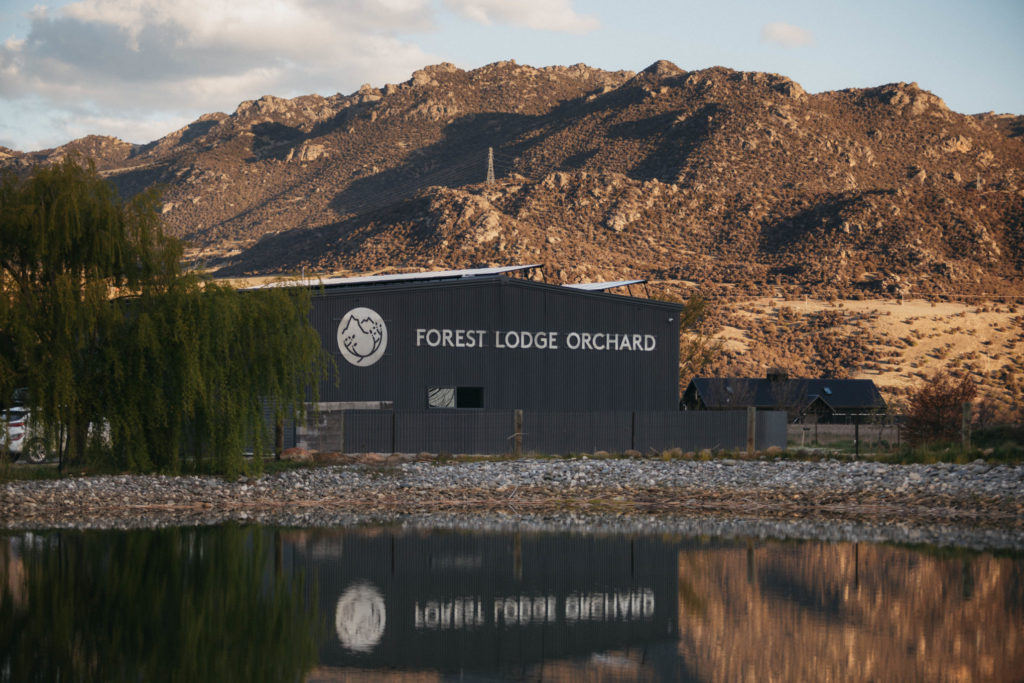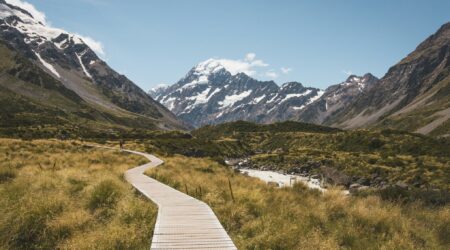Behind the business: Mike Casey, Forest Lodge Orchard
10 Dec 2021
Every business is important to someone. So they’re all important to us.
In this series, we’re chatting to some BNZ customers and getting to know the people, and inspiration, behind the business.
Forest Lodge Orchard in Central Otago is a zero fossil fuel, high density cherry orchard owned by Mike and Rebecca Casey, that started from an urge to do something about climate change.
What is your personal business journey and the inspiration behind Forest Lodge Orchard?
Post-university I started a company with three other guys in Sydney called GradConnection, we ran that for 12 years, then sold to SEEK in 2019. I didn’t know exactly what I was going to do next, all I knew was that my wife, Rebecca, and I wanted to move to Wānaka with the kids. But we found this farm, where we live now – it had a house, a large shed and the stables, and 9 hectares of land we could make use of. Then one thing led to another, and we decided that we were going to establish a cherry orchard.
I’ve always wanted to do something positive towards humanity’s efforts to fight climate change. I knew my next step was going to be in that renewable space, but I had no idea what it was going to be, how it was going to work, or what it looked like.
My first step was to plant a lot of productive trees to take in carbon, a business and a climate initiative in one. I then realised there was a huge opportunity to take a traditional business, like horticulture, where New Zealand has fantastic growers, and bring my knowledge of technology to further reduce the industry’s emissions.
Do you feel that you are fulfilling what you set out to achieve with your business? Has anything changed along the way?
What I can say is, I’m really proud of where we’re at and we’ve achieved more than what I initially set out to achieve.
I didn’t set out to be an entirely zero fossil fuel operation. I set out to do things in a better way and then realised halfway through that the zero fossil fuel mission was actually a possibility. The first harvest is coming off, most likely in January, and that harvest will be what I believe is the first zero fossil fuel harvest in the world. Which means we’ve replaced all fossil fuel technology that is currently used by the industry and found an electric alternative.
It’s been long and complex and tough, but we’ve managed to achieve it. Which is something I think that we can be quite proud of.
What was that transformative moment when you knew what you were doing was great/working?
What we do know is, we can do everything we need to do to bring a crop to harvest. What we don’t know yet is if the consumer will respond to that.
The hypothesis is that people will respond very positively towards our initiative, in the same way they did free range eggs and organics. But we don’t know for certain whether that’s the case.
So, we’re not going to count it as a full success until we’ve seen this first pilot harvest in stores and know how the consumer responds to it.
But it’s got so much bigger than this orchard now. This orchard is just one grower, hopefully one of many, many growers that are going to grow for our consumer brand that we’re creating called NZ Zero. Which is going to be a zero fossil fuel food brand for food produced in New Zealand and a formal certification food producers can qualify for.
How did you come up with the name for your company?
My 5-year-old daughter went to Forest Lodge Public School in Forest Lodge, Sydney. She was a bit upset when we were leaving to move to New Zealand so, we let her name our orchard. Which is rather ironic because there’s neither a forest nor a lodge anywhere on our property!
What has been your biggest challenge so far?
We’re having to source equipment from all around the world to meet our goals. So, the first is the fan for frost fighting. There were no electric frost fighting fans on the market and we ended up finding the only supplier, I believe in the world, that’s creating electric frost fighting fans. We had to import two giant frost fighting fans from Cape Town in the middle of COVID to get them up and running for this season. It was an absolute minefield!
The second, which is something that’s coming in June next year, is what I believe will be New Zealand’s first fully electric tractor which is coming from California. Along with that we also got one of New Zealand’s largest electric ride-on mowers. We don’t get our tractor until June, so how was it that we were going to be able to do a zero fossil fuel harvest this year without a tractor?
For all our spraying of crops, we had to modify a golf cart and a pump and a boom and do a lot of number-eight-wire stuff to create the tools that we can use to be a zero emission crop this year. That was really tough, because a lot of people could just turn around and say it’s too hard to do it this year, and we’ll do it next year, or we’ll do it the year after…but we’ve taken that challenge head on, sourced things from around the world, and when those things aren’t available, we’ve made them ourselves.
What advice would you give any person starting their first business?
My number one piece of advice is: don’t be in two minds about it. If it’s something that you really want to do, just give it a crack. Give it a solid crack and you’ll find that what you end up doing, it’s probably quite different from what you think it’s going to be. As you go down a road less paved, you discover opportunities and things that no one else has really discovered before.
How important are the people and relationships you build to running your business, including the one you have with BNZ?
I’m a big believer in relationships being the most important thing in business. When you’re interacting with others, I think the number one thing is to provide the same level of respect for absolutely everybody. It doesn’t matter if they’re a minister that’s coming to visit our place or one of our backpackers who is with us for six months – everybody has a place and a role to play in our business journey.
What does the future hold for Forest Lodge Orchard?
I don’t want us to be the only zero fossil fuel farm in New Zealand. I want to use what we’ve done to really shift the needle when it comes to climate change.
Our little farm down in Central Otago, with what we have done, is saving 80 tonnes of carbon a year. If you can scale that up to 20%, 30%, 40% of horticultural operations in New Zealand, that’s a huge amount of emissions that we’re saving.
That’s what my real long-term goal is – it’s not to be special. It’s slowly making ourselves un-special by getting other people to follow and do the same thing that we’re doing. If I can do that then no matter what happens with the climate, I can rest knowing I’ve done what I can.
When it comes to climate change, you can either ignore it or choose not to believe in it, which is just not really an option; you can sit there and worry about it and go into a tailspin; or you can actively do something about it; and I’ve decided to actively do something about it. Whether my contribution is a rounding error or whether it really helps, is yet to be determined. But it’s a good place psychologically to be sitting when we’re looking into such an existential crisis, to be sitting there going, I really believe that I’m doing my part here.
Read more Behind the Business stories here.
This article is for general information only. It’s not advice (financial, legal, or otherwise) and can’t be relied upon. If you do, then no one, including BNZ, is liable for resulting losses (both direct and indirect). Any opinions may not be the same as BNZ (or anyone else). Contact BNZ or your professional advisor for help or advice specific to you.




